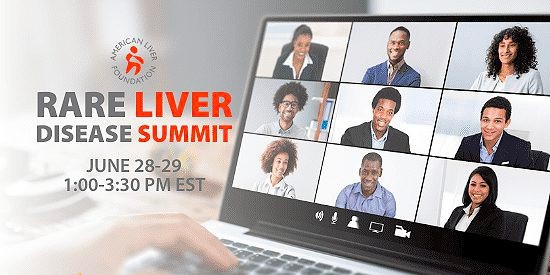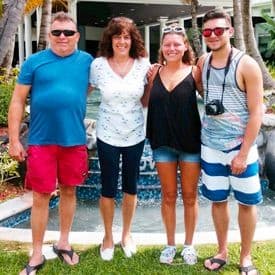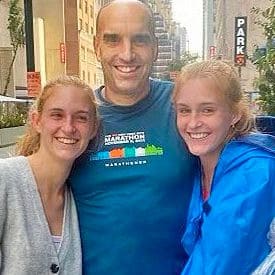Rare Liver Disease Summit Seeks to Improve Patient Health Outcomes
American Liver Foundation brings together experts, patients, and families in a virtual two-day event

The American Liver Foundation (ALF) will bring together leading rare liver disease experts and clinicians, patients, caregivers, advocacy organizations and industry representatives for a virtual two-day Summit, June 28-29, to identify solutions which can improve the health outcomes of those affected by rare liver diseases.
The Rare Liver Disease Summit will focus on developing a better understanding of how people can avoid misdiagnosis or achieve earlier diagnosis; increasing education of genetic testing and addressing stigmas; reducing the patient burden and improving the overall patient experience; and investigating how telemedicine can play a role. The Summit will also explore patient and caregiver views on currently available treatment options, daily function and quality of life issues, care coordination, and the liver transplantation process.
“Patients and families struggling with a rare liver disease need our support and deserve better ways to manage their disease,” said Lorraine Stiehl, Chief Executive Officer, American Liver Foundation. “By bringing together this unique group of stakeholders my hope is that we can address the issues that matter to our patients and families most.”
“Focusing on rare liver diseases is an opportunity to enhance understanding of diseases that are often overlooked and improve care for patients who are often not understood. Without programs like the one run by the American Liver Foundation this would absolutely not be possible,” said Theo Heller, MD, Chief of the Translational Hepatology Section at the National Institutes of Health (NIH) where he focuses on rare liver diseases.
There are many types of rare liver diseases. Some more common ones include: Acute Hepatic Porphyria, Alagille Syndrome, Alpha-1 Antitrypsin Deficiency, Biliary Atresia, Crigler-Najjar Syndrome, Galactosemia, Glycogen Storage Disease, Lysosomal Acid Lipase Deficiency, Primary Biliary Cholangitis, Primary Sclerosing Cholangitis, Progressive Familial Intrahepatic Cholestasis (PFIC), and Wilson Disease. Rare diseases are those which affect a small number of people compared to the general population. In the United States, a disease is considered rare if it affects fewer than 200,000 people in the U.S. at any given time.
“So little is known about so many different rare liver diseases that Summits like this one are essential to shedding light on rare liver diseases and advancing knowledge, research and treatments,” said Bruce Dimmig of Surprise, AZ, who suffers from liver diseases including the rare disease Nodular Regenerative Hyperplasia.
As follow-up to the Rare Liver Disease Summit, American Liver Foundation will publish a report highlighting the key takeaways including strategies to help foster earlier diagnosis, raise the profile of genetic testing, and reduce stigma. ALF will also produce a Rare Liver Disease Patient Bill of Rights to help patients and families develop a better working relationship with their medical care teams.
To better understand how a rare disease affects patients and families read these real-life stories.
American Liver Foundation is grateful for the support of the following organizations: Albireo, Alexion, Deep Genomics, EveryLife Foundation for Rare Diseases, Mirum, Takeda and Vertex Pharmaceuticals.
Last updated on May 10th, 2023 at 12:18 pm




